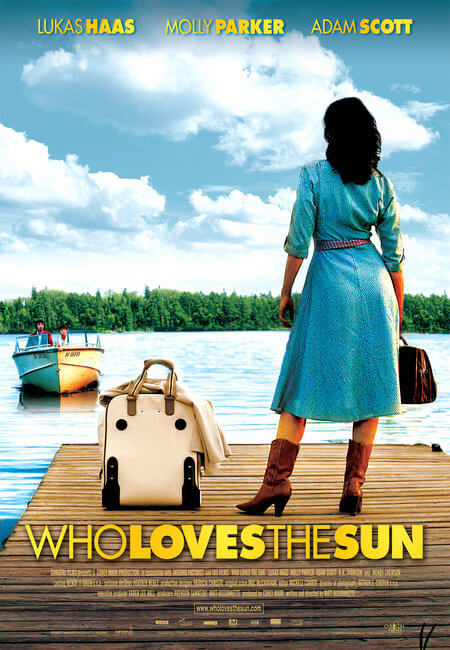Introduction
“Who Loves the Sun” is a modest Canadian dramedy that takes its audience on a journey of emotions, revelations, and confrontations. Set against a remote lakeside cabin backdrop, the film brings together five characters who have been estranged for years. As they come face to face, old wounds are reopened, secrets are unveiled, and the complexity of human relationships is explored. Directed and written by Matt Bissonnette, the film showcases a blend of humor, drama, and scenic beauty.
The Intriguing Plot
The story revolves around a semi-retired couple, Arthur and Mary Bloom, who are unexpectedly visited by Will Morrison, the childhood best friend of their son, Daniel. Will’s sudden appearance after a five-year absence raises eyebrows and questions. He remains mysterious about his whereabouts during this period, only revealing that he has traveled extensively and penned an unpublished novel.
The plot thickens when it’s revealed that Daniel had an affair with Will’s wife, Maggie, which led to Will’s disappearance. This revelation sets the stage for confrontations, confessions, and a comical fight between the two men. Maggie’s eventual arrival adds another layer to the narrative as she confronts Will for abandoning her and addresses the past incident with Daniel.
Character Dynamics and Revelations

The film delves deep into the intricacies of friendships, betrayals, and love triangles. While the male characters showcase a mix of rivalry and affection, the female characters, though not as elaborately sketched, bring depth to the story through their performances. The interactions, mostly in pairs or trios, are accentuated by the stunning visuals of sunsets and scenic beauty.
Bissonnette’s naturalistic approach to dialogue stands out, especially in the portrayal of stoned conversations, a recurring theme in the film. The narrative keeps the audience engaged with its well-timed performances and gradual revelations, culminating in a significant twist in the final act.
A Director’s Vision
Matt Bissonnette, the creative genius behind “Who Loves the Sun,” is no stranger to the cinematic world. With a co-directing credit for “Looking for Leonard” alongside Steven Clarke, Bissonnette confidently took the reins solo for this masterpiece. His unique touch is evident in the film’s delicate balance of drama and comedy, effortlessly making the audience swing between bouts of laughter and poignant moments. While the script might seem a tad too polished at times, Bissonnette’s direction ensures the narrative remains captivating from start to finish.
Stellar Performances
The cast of “Who Loves the Sun” truly shines bright. Embodying the enigmatic Will Morrison, Lukas Haas brilliantly portrays a man grappling with inner turmoil and past regrets. Adam Scott, as Daniel, delivers an endearing and slightly unnerving performance. In the role of Maggie, Molly Parker adds layers of depth, effortlessly transitioning from fiery anger to raw vulnerability. And let’s remember the seasoned duo, R.H. Thomson and Wendy Crewson, who, as Arthur and Mary Bloom, bring a touch of class to the film.
Cinematic Beauty
One of the standout elements of the film is its mesmerizing visuals. The tranquil setting of a remote lakeside cabin contrasts beautifully with the storm of emotions brewing among the characters. Those sunsets? Simply a feast for the eyes, symbolizing both the end of cherished memories and the dawn of new hopes. While the occasional post-synched dialogue might catch one off-guard, it hardly detracts from the immersive cinematic journey.
A Touch of Reality
Bissonnette’s flair for crafting authentic dialogues is evident, especially in scenes highlighting casual marijuana use. The film doesn’t hold back in showcasing the characters’ vulnerabilities, making them all the more relatable to viewers. It offers a refreshing take on male friendships, painting a picture of both camaraderie and competition.
In Conclusion
“Who Loves the Sun” isn’t just a movie; it’s a heartfelt journey. It beckons viewers to introspect on their relationships, face their past, and look forward to what lies ahead. While it might cater to a specific audience, its universal themes of love, betrayal, and redemption resonate with moviegoers worldwide. As the screen fades to black, it leaves one pondering the intricate web of human emotions and the choices that shape our lives.

